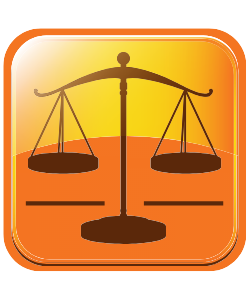Witnesses and Your Personal Injury Case
When it comes to being paid for the actions of a careless driver, evidence is king. The more you have, the faster and higher your compensation is likely to be. To prove your case and light a fire under the at-fault driver's insurer, evidence is important, and few things beat witness testimony. Witnesses are so much more than just a passerby's story of what they saw. Read on to find out about the various types of witnesses and what they could contribute to your car accident case.
The Biased Observer
The first type of witness is also the weakest because it applies to those who have a personal stake in the outcome of the case. Lay witnesses are those who saw the accident from the vantage point of one of the vehicles involved. It's the passengers who may have their own stories of how things happened. While this testimony may lean heavily in the direction of the driver of the car they were in, it still provides a valuable viewpoint. These types of witnesses often provide a missing bit of information that can easily affect the outcome of the case.
The Neutral Party
When it comes to auto accidents, the statements of disinterested bystanders are highly valued. While what these bystanders saw can be subject to faulty memories, trauma (from witnessing an accident), and even certain racial, gender, or other biases, the law tends to place a great deal of weight on what they say they saw when the accident happened.
The Professional Witness
Individuals being paid to provide an opinion during settlement negotiations or a court case is part of some cases. Many experts accept fees for their time because of the complex nature of some cases. One common expert witness is that of the highway or accident reconstruction specialist. It can take a lot of time to dissect an accident scene using photographs and computer modeling scenarios to help figure out what happened. Expert witnesses do more than help parties determine fault — they may also be used to prove damages. For example, a vocational expert might help determine how much a victim would have earned had they not been permanently disabled in the accident. A medical doctor might testify about how much more treatment a victim will need in the future.
Luckily for accident victims, they don't have to worry about these details because they have a personal injury lawyer to take care of that for them. To find out more, speak to your personal injury lawyer or click for more information.
 People who become injured due to the negligence of others often hire personal injury attorneys to represent them in a lawsuit. If you're in this type of situation, you should examine the articles on this blog to learn more information about the process. We aren't in the legal profession and we don't know everything there is to know about the law, but we have done some research on our own to find out the basics of personal injury litigation.
As you read this blog, you'll learn what steps you should take to hire an attorney and what to expect if your lawsuit goes to trial. You'll also find information about the laws pertaining to personal injury cases. We hope the articles on this site will help you to decide your next steps in the litigation process.
People who become injured due to the negligence of others often hire personal injury attorneys to represent them in a lawsuit. If you're in this type of situation, you should examine the articles on this blog to learn more information about the process. We aren't in the legal profession and we don't know everything there is to know about the law, but we have done some research on our own to find out the basics of personal injury litigation.
As you read this blog, you'll learn what steps you should take to hire an attorney and what to expect if your lawsuit goes to trial. You'll also find information about the laws pertaining to personal injury cases. We hope the articles on this site will help you to decide your next steps in the litigation process.